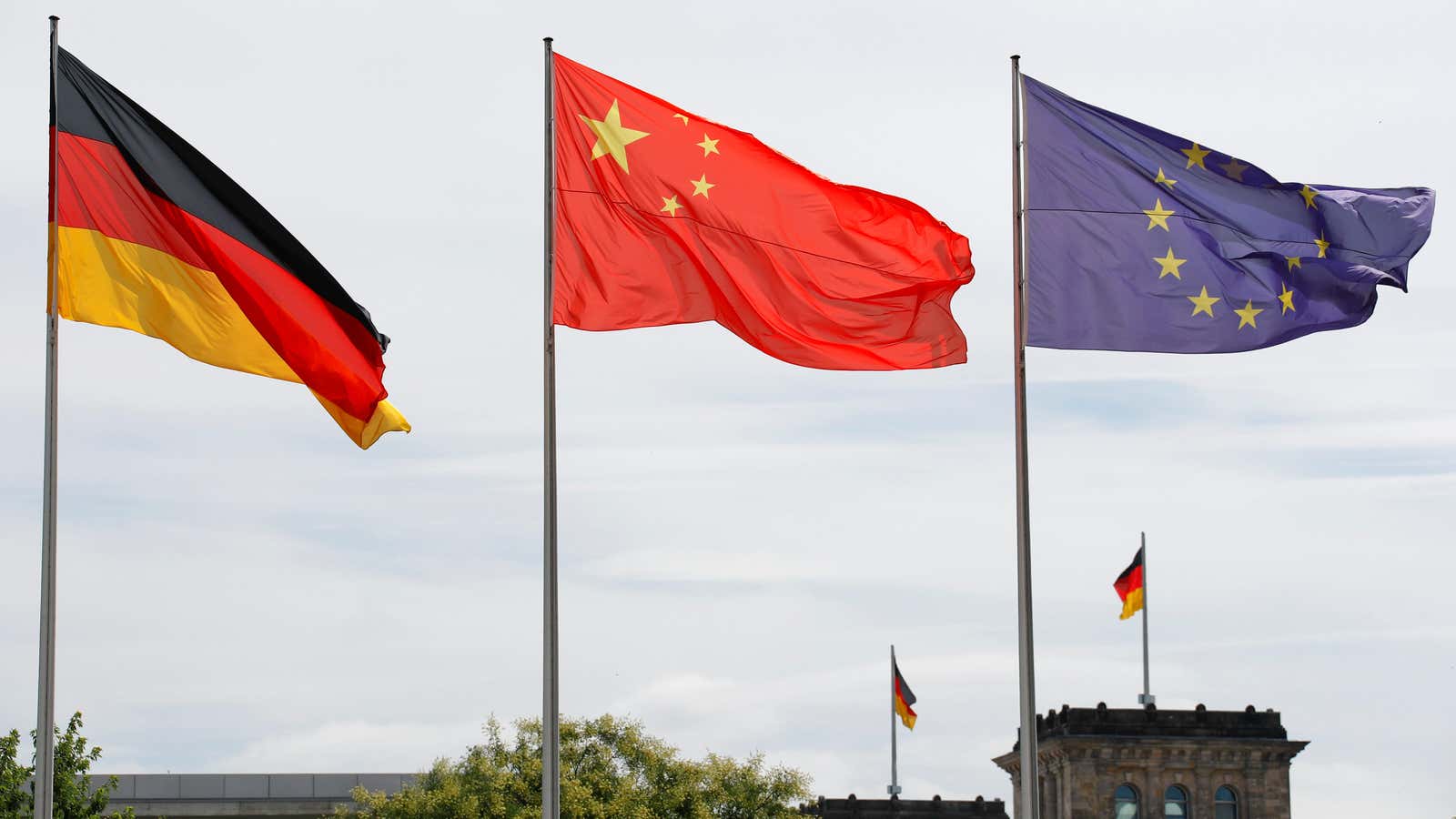This year was meant to be pivotal for the future of EU-China relations—that is, before a global epidemic of the Coronavirus broke out in Wuhan province, killing 563 people, infecting more than 28,000, and straining the world economy.
Amid a tense international backdrop, China and the EU have been renegotiating the terms of their relationship since the early 2010s. In 2013, they signed a “Strategic Agenda for Cooperation,” in which they committed to deepening their cooperation on a range of issues and to signing a joint investment agreement by the end of 2020.
But then, in response to China’s meteoric growth—both in economic and political influence—EU leaders announced a shift in 2016 to “a more realistic, assertive, and multi-faceted approach” towards Beijing. And last year, the EU sent shockwaves through the diplomatic community by saying in a strategic communication (pdf) document that China is a “systemic rival promoting alternative models of governance.” In recent months, trade tensions between the US and China and between EU member states over Huawei’s 5G technologies further complicated the EU-China relationship.
Analysts had been hoping 2020 would bring more clarity to any future partnership between two of the world’s largest economies. Brussels and Beijing had planned to conclude long-running negotiations for an investment agreement by the end of the year, with an eye towards launching negotiations for a bilateral trade deal. To that end, a set of key events were scheduled to take place in 2020:
But now, political and technical obstacles tied to the spread of the Coronavirus may disrupt this ambitious schedule, relegating relations with the EU to the bottom of Chinese officials’ agendas and making it both logistically and politically complicated to stick to the original timeline for the Comprehensive Agreement on Investment, as it’s officially known.
A representative of the Delegation of the European Union to China (EEAS) told Quartz that no high-level meetings or summits had been canceled, but that “the situation is obviously evolving day by day.” The European Commission and the EEAS “have suspended all non-essential missions to China” until Feb. 16, the spokesperson said, and “recommended that all non-essential visits and meetings coming from China are to be temporarily postponed.”
Meanwhile, Midlands Engine, the host of this year’s UK-China Regional Leaders Summit, announced they would postpone the event because of the coronavirus outbreak. And a spokesperson for the EU Chamber of Commerce in China said that, while the investment agreement remained “a top priority for European business in China,” the coronavirus outbreak “will impact progress.”
The epidemic isn’t entirely to blame for the slow pace of negotiations (paywall). “It already wasn’t looking good even before the Coronavirus,” says Andrew Small, a senior transatlantic fellow at the German Marshall Fund. The EU and China have yet to agree on major aspects of the deal, including how to give European businesses greater access to Chinese markets, and how to settle any eventual disputes.
Still, it’s not making things any easier. “It is now going to be a real challenge to close the gaps, especially because the parties are unlikely to travel to engage in negotiations in the coming months,” said Joerg Wuttke, president of the EU Chamber of Commerce in China.
“Until you get the political level invested in some of the negotiations and the…enforcement mechanism of some of the big meetings and summits, it’s unlikely that you’re going to get a huge amount of progress,” Small said. “There’s a risk that it’s going to blow up quite a lot of negotiations this year.”
